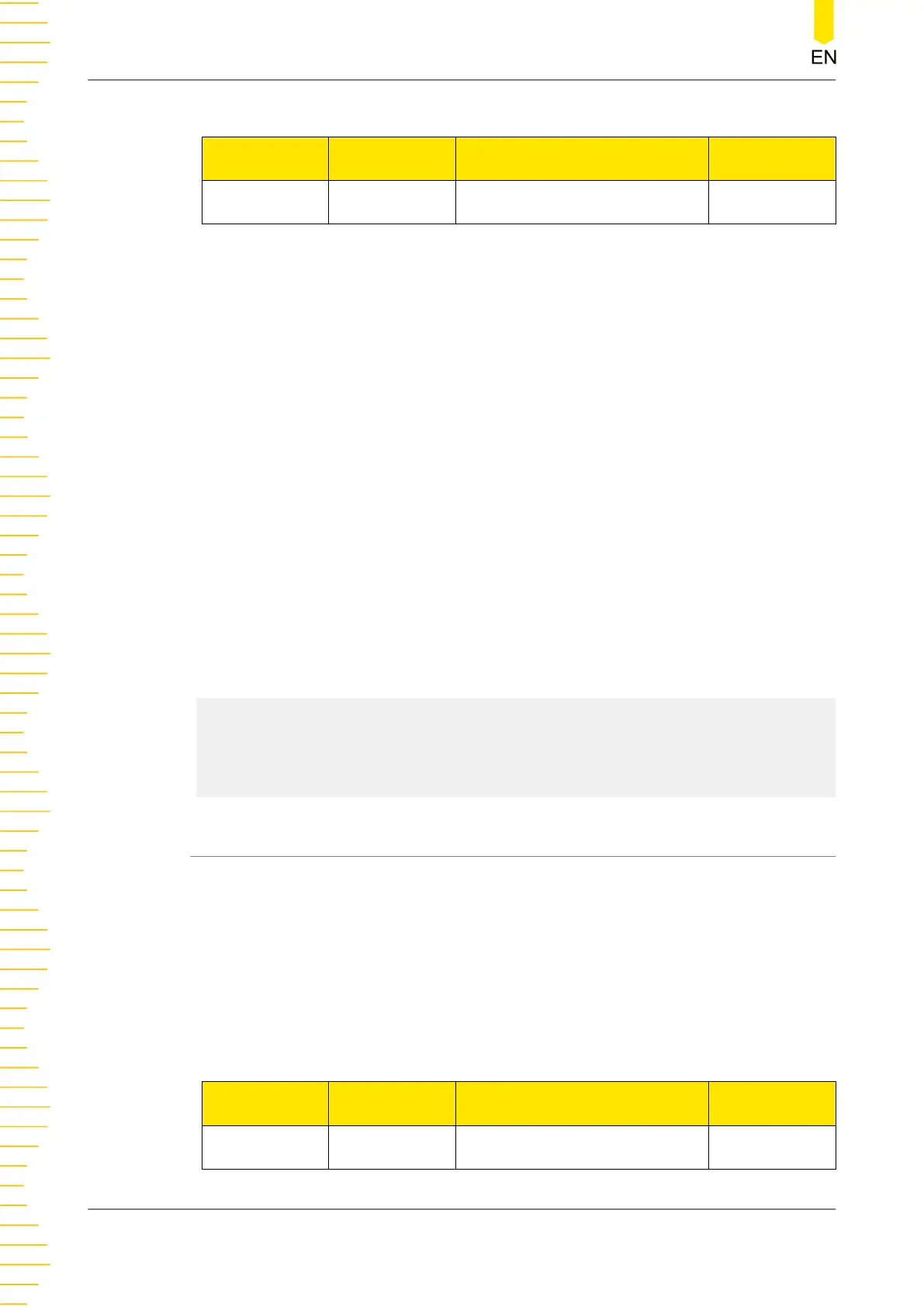Parameter
Name Type Range Default
<n> Integer {1|2|3} -
Remarks
• You can send
[:SOURce[<n>]]:CURRent:PROTection:TRIPped?
to query whether
an OCP event occurred on the specified channel.
• Before executing the command, make sure to remove the condition that caused
the overcurrent protection on the specified channel (you can either decrease the
output current to below the OCP level or increase the OCP level to be greater
than the output current). Execute this command to clear an OCP event that
occurred on the specified channel and enable the output of the corresponding
channel.
• If [:SOURce[<n>]] or [<n>] is omitted, the command clears an OCP event
occurred on the current channel.
• You can send
:OUTPut:OCP:CLEar
command to clear an OCP event that occurred
on the specified channel.
Return Format
None.
Examples
:CURR:PROT:TRIP? /*Queries whether an OCP event occurred on the
current channel. The query returns 1.*/
:CURR:PROT:CLE /*Clears an OCP event that occurred on the current
channel.*/
:CURR:PROT:TRIP? /*Queries whether an OCP event occurred on the
current channel. The query returns 0.*/
4.9.4 [:SOURce[<n>]]:CURRent:PROTection[:LEVel]
Syntax
[:SOURce[<
n
>]]:CURRent:PROTection[:LEVel] {<
current
>|<
lim
>}
[:SOURce[<
n
>]]:CURRent:PROTection[:LEVel]? [<
lim
>]
Description
Sets or queries the overcurrent protection (OCP) level for the specified channel.
Parameter
Name Type Range Default
<n> Integer {1|2|3} -
Command System
60
Copyright ©RIGOL TECHNOLOGIES CO., LTD. All rights reserved.

